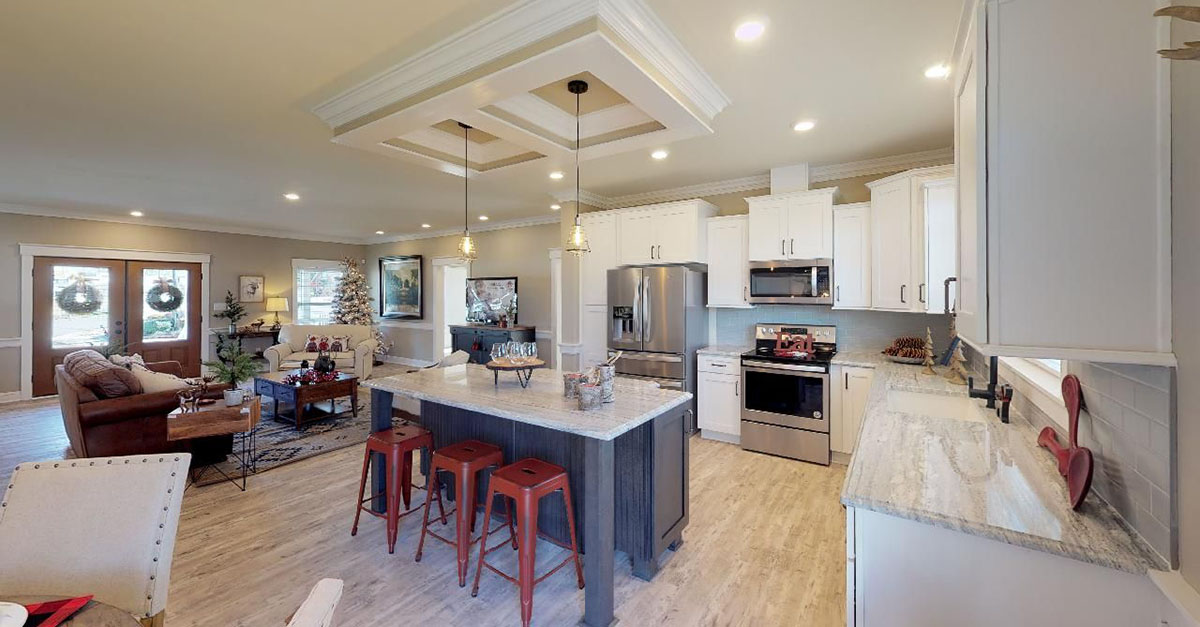Everyone wants to have a dream home that is perfect for their family. However, choosing the right type of home can be overwhelming, especially for first-time homeowners. With so many different options available, it can be challenging to decide which one is best suited for your lifestyle and budget. Two types of homes that often get compared are modular and manufactured homes. Both options offer unique benefits and drawbacks. This blog post discusses the differences between modular and manufactured homes to help you make an informed decision on which one is the right choice for you.
What Distinguishes a Modular Home from a Manufactured Home?
Modular and manufactured homes are types of prefabricated structures, which means they are constructed either partially or entirely in a factory located off-site.
The main distinction between modular and manufactured homes lies in their adherence to building codes. Modular homes must comply with local, state, and regional regulations, just like traditional on-site homes. On the other hand, manufactured homes follow a federal code established by the Department of Housing and Urban Development (HUD) and have the ability to move.
Modular Home Definition
A modular home is similar to a conventional home, except that it is built in sections off-site and then transported to the homeowner's lot. These sections are manufactured in a factory and assembled on a permanent foundation. It is important to note that the construction of a modular home must adhere to the specific building codes and standards of the local area where it will be situated.
Modular homes are available in a wide variety of shapes and sizes. In fact, they often closely resemble traditional site-built homes, making it difficult to distinguish between the two. Like conventionally constructed homes, the value of modular homes also fluctuates in line with the traditional housing market.
Buyers of modular homes have an advantage with the wide array of financing options provided by banks and mortgage lenders. This expands their choices when the time comes to purchase a home, ensuring a diverse range of possibilities.
Manufactured Home Definition
A manufactured home is constructed in a factory or warehouse, adhering to the building codes established by the U.S. Department of Housing and Urban Development (HUD). These homes are then transported to the desired location, either in sections or as a complete unit, and installed on either a temporary or permanent foundation. In the majority of situations, they are permanently affixed to the foundation.
Contemporary manufactured homes are either single-wide, double-wide, or triple-wide:
- Single-wide homes are constructed in a single, elongated section.
- Double-wide homes are created by joining two sections together, resulting in a larger and more spacious living space. This particular model is highly sought after by first-time home buyers.
- Triple-wide homes, although less common, consist of three sections seamlessly joined together to create a larger and more spacious living space.
What’s The Difference Between Modular And Manufactured Homes?
Although both manufactured and modular homes offer cost-effective alternatives to traditional site-built homes, it is important to take into account certain distinguishing factors when making a decision between the two options.
Construction
Modular homes are built in sections in a factory, then transported to the location site, and assembled on a foundation. The building process is similar to a traditional site-built home, except that modular homes are constructed in a controlled environment, reducing the chances of weather-related issues and errors.
Manufactured homes, on the other hand, are built entirely in a factory and transported to the location site. They are built on a steel chassis, designed to be transported on a highway, and then set on a foundation.
Foundation
Modular homes are usually built on a permanent foundation, similar to traditional homes. They can also be placed on crawl spaces or basements, providing more stability and allowing for future expansions.
Manufactured homes, as mentioned earlier, are built on a steel chassis and are not considered permanent structures. They are typically placed on either a concrete slab or piers, making them easier to move and relocate if needed.
Mobility
Modular homes can be relocated, but it is not a straightforward process. The home would have to be disassembled and transported in sections to the new location, then reassembled on a new foundation.
Manufactured homes are designed for mobility and can be moved easily. They can also be placed in different types of communities, including manufactured home parks or private land with zoning restrictions.
Real Property
Modular homes are considered real property once completed on site. This means they are eligible for traditional mortgage financing and can appreciate in value over time.
In contrast, manufactured homes are classified as personal property, similar to a car or RV. In order to be considered real property, they must be permanently affixed to the site, then must be converted from chattel to real property through the county.
Financing Options
Standard financing options exist for modular homes, as they are considered real property. This means potential homeowners can secure traditional mortgages from banks or credit unions.
Manufactured homes, on the other hand, often require specialized loans due to their classification as personal property. These loans may have higher interest rates and shorter terms compared to traditional mortgages.
Customization
Modular homes offer more customization options than manufactured homes. Since they are built in sections, homeowners have more flexibility in the layout and design of their home.
Manufactured homes, on the other hand, have limited customization options. They are built with pre-designed floor plans that typically cannot be altered or customized.
Code Requirements
Modular homes need to follow local, state and regional codes as they are considered permanent structures. This ensures that the home is built to meet safety and quality standards.
Manufactured homes, on the other hand, fall under federal HUD code requirements but may not have to comply with local or state building codes. This can potentially lead to lower construction standards and quality.
North Carolina's Choice for Modular Homes
Choosing between modular and manufactured homes can be intimidating at first, but it's important to consider the advantages and disadvantages of each home type. Your decision will depend on your budget, customization needs, lifestyle, and location. Modular homes offer more customization options, are built with better quality materials leading to a higher resale value and comply with local building codes providing greater safety and long-lasting quality. Manufactured homes, on the other hand, are more affordable but have limited customization options.
Carolina Custom Homes is the #1 modular home builder in NC. We will build a custom home of your dreams that is affordable and customized to your specific needs. Visit our website to learn more about our modular homes and how we can help you build the perfect home for your family. Remember, your dream home is just a few steps away! So why wait? Contact us today to begin the journey towards your new home.
If you're ready to find your perfect floor plan, schedule a tour today and explore Timberlake's unique offerings. Our friendly staff is always ready to answer questions and help you navigate the home-building process. We look forward to helping you find the perfect home!






